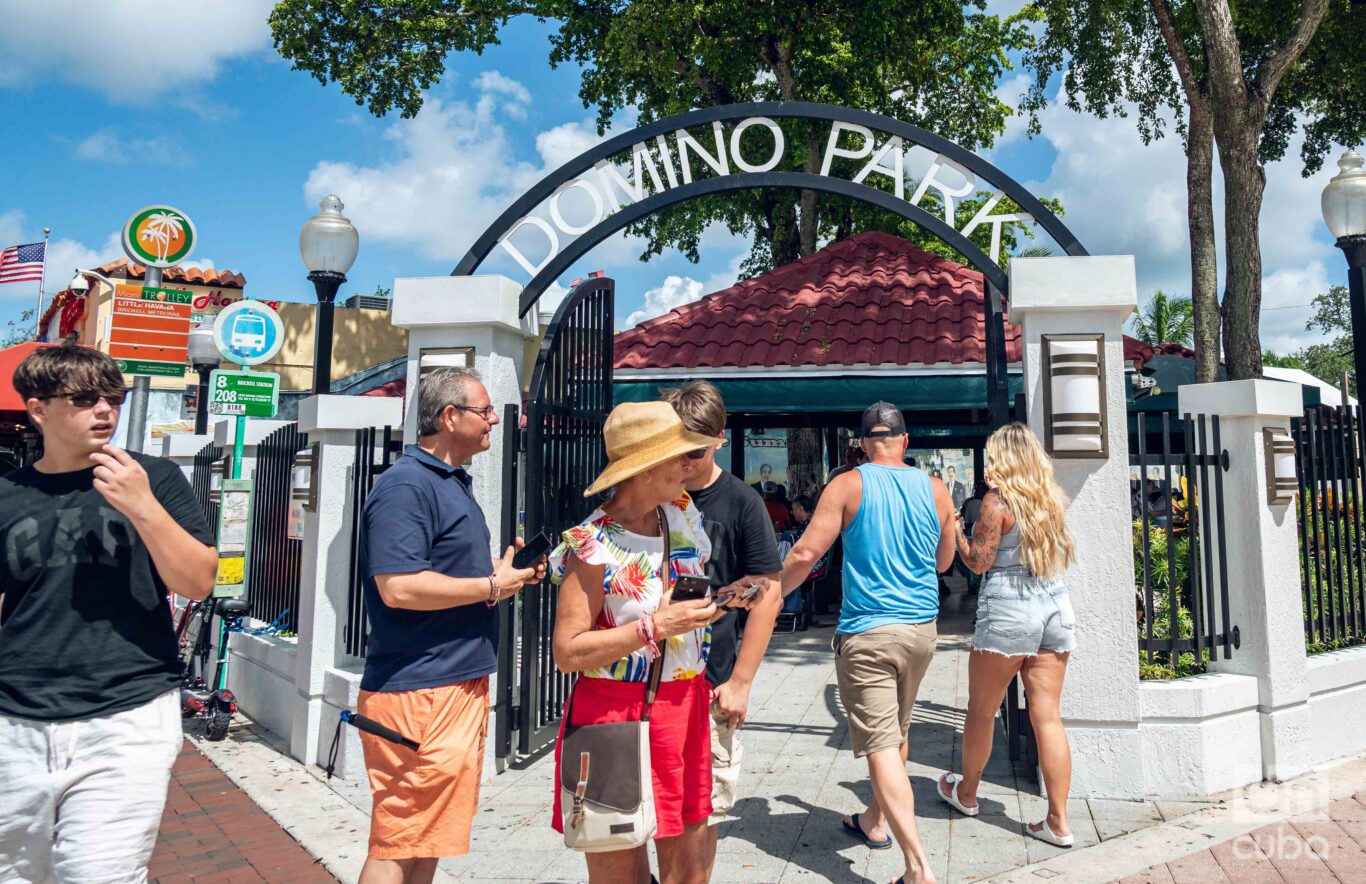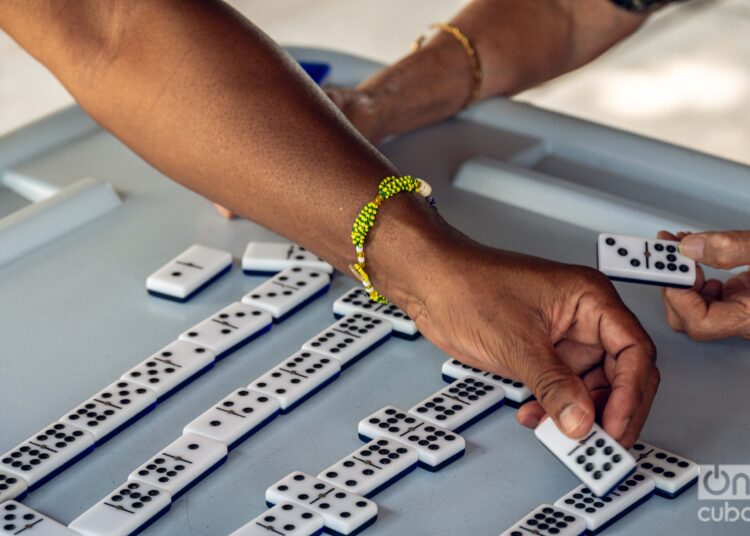In the heart of Little Havana, in Miami, one of the most mentioned places in conversations about Cuban nostalgia is Domino Park. It is not just a place to play, but a reflection of the life of this community, its culture and its memories.
One afternoon I was wandering around the place, among the tables and the players. The atmosphere was full of laughter, conversations and the unmistakable clacking of the pieces. I went to observe the place where each move was not only a strategic move, but a way of maintaining the connection with Cuba.
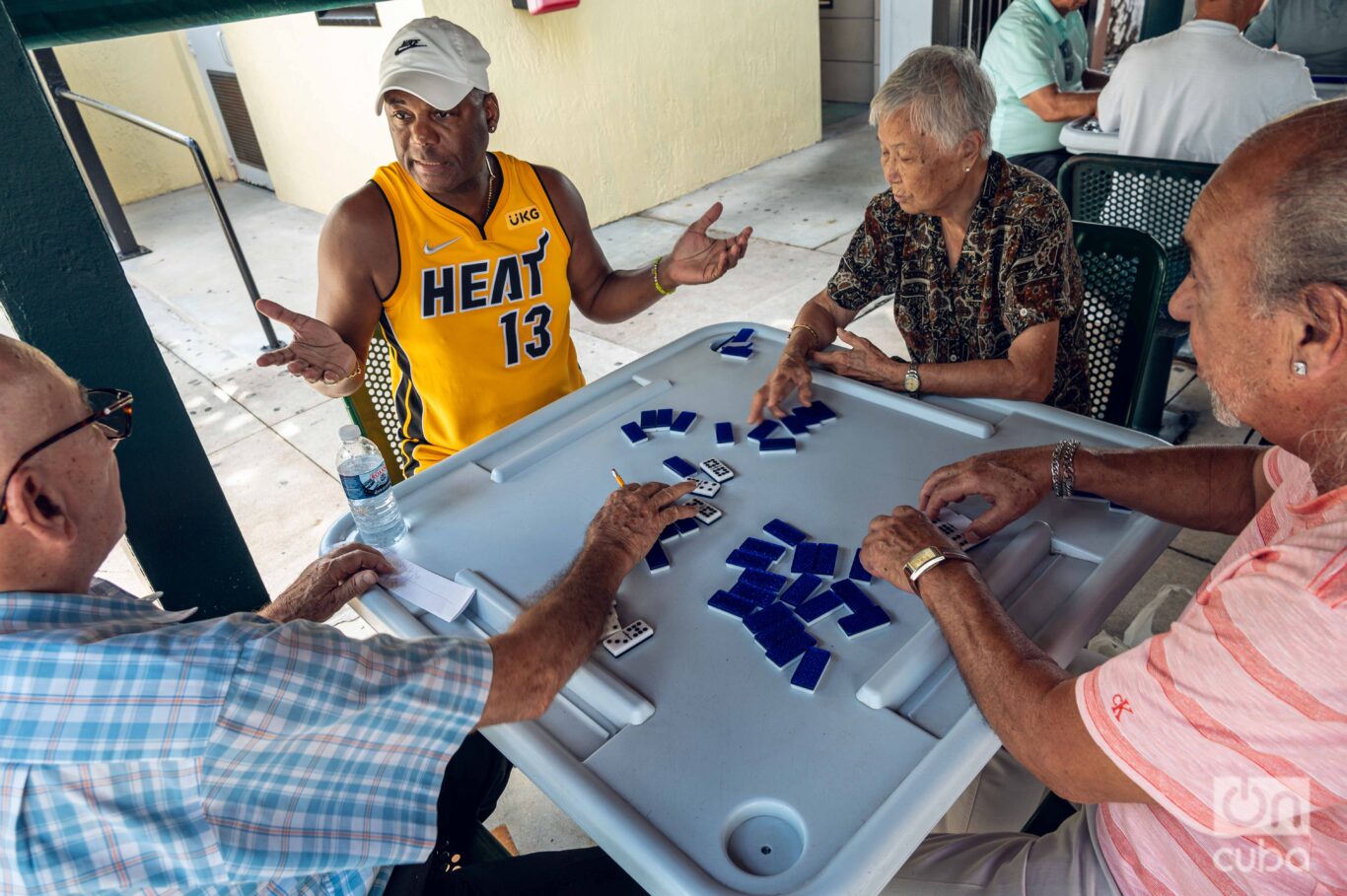
The park, officially called Máximo Gómez, is located on the corner of Calle 8 and Avenida 15. It is named after one of the heroes of Cuban independence, although everyone simply knows it as Domino Park.
It is a small space, but what it lacks in size it makes up for in the richness of the stories that are woven there between men and women, veterans not only in the game, but in life.
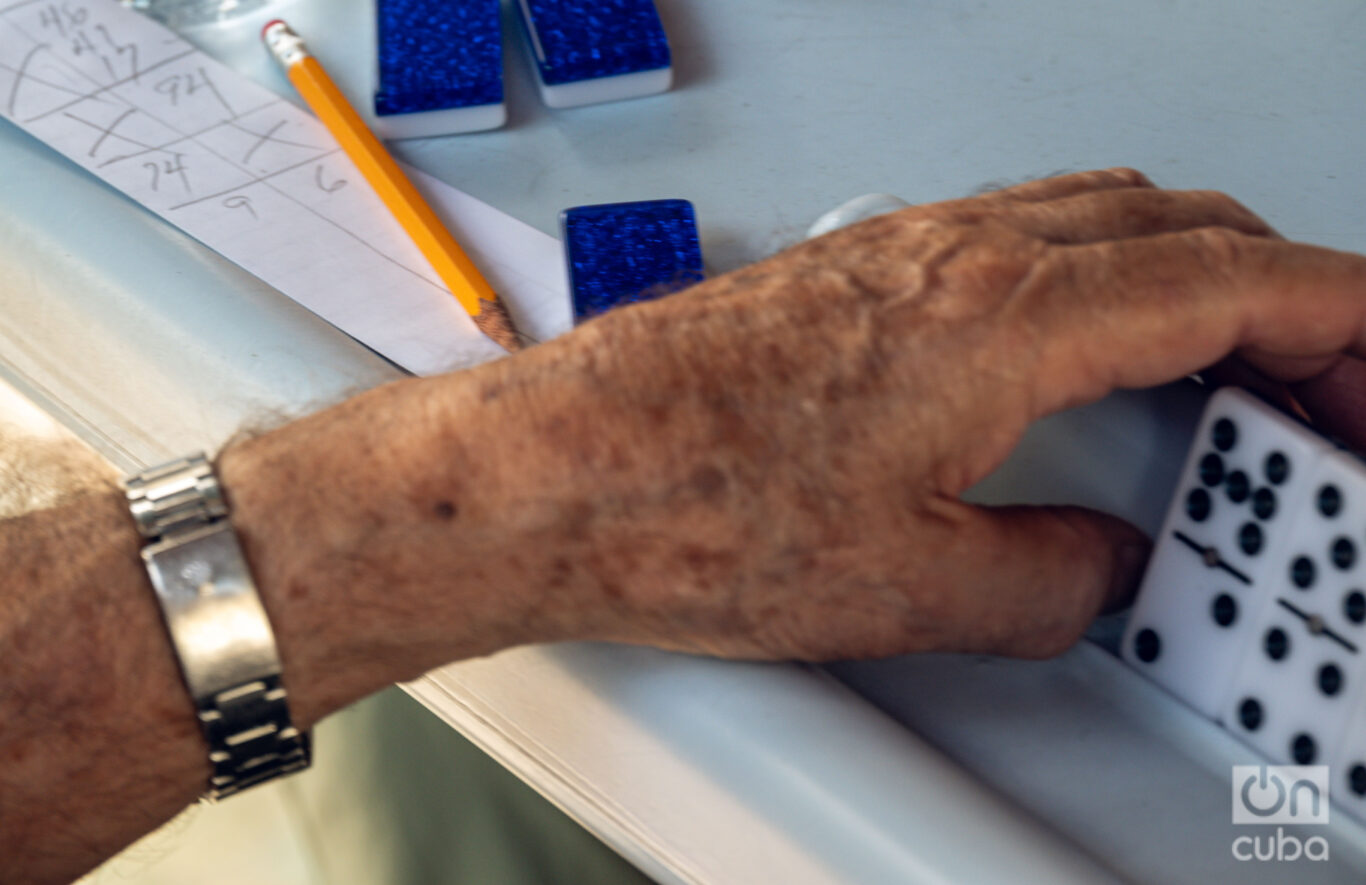
The park was founded more than forty years ago by a group of Cuban exiles who, in their search for a place to recreate the traditions of their land, began to meet in that empty corner. There, they improvised tables to play domino and, over time, the place took shape. They conditioned it until it became the park we know today, covered and with amenities for the players.
However, despite modernization, it has not lost the character of the corners of Havana or Santiago de Cuba, where people play domino, chess or checkers, but above all, they talk and remember.
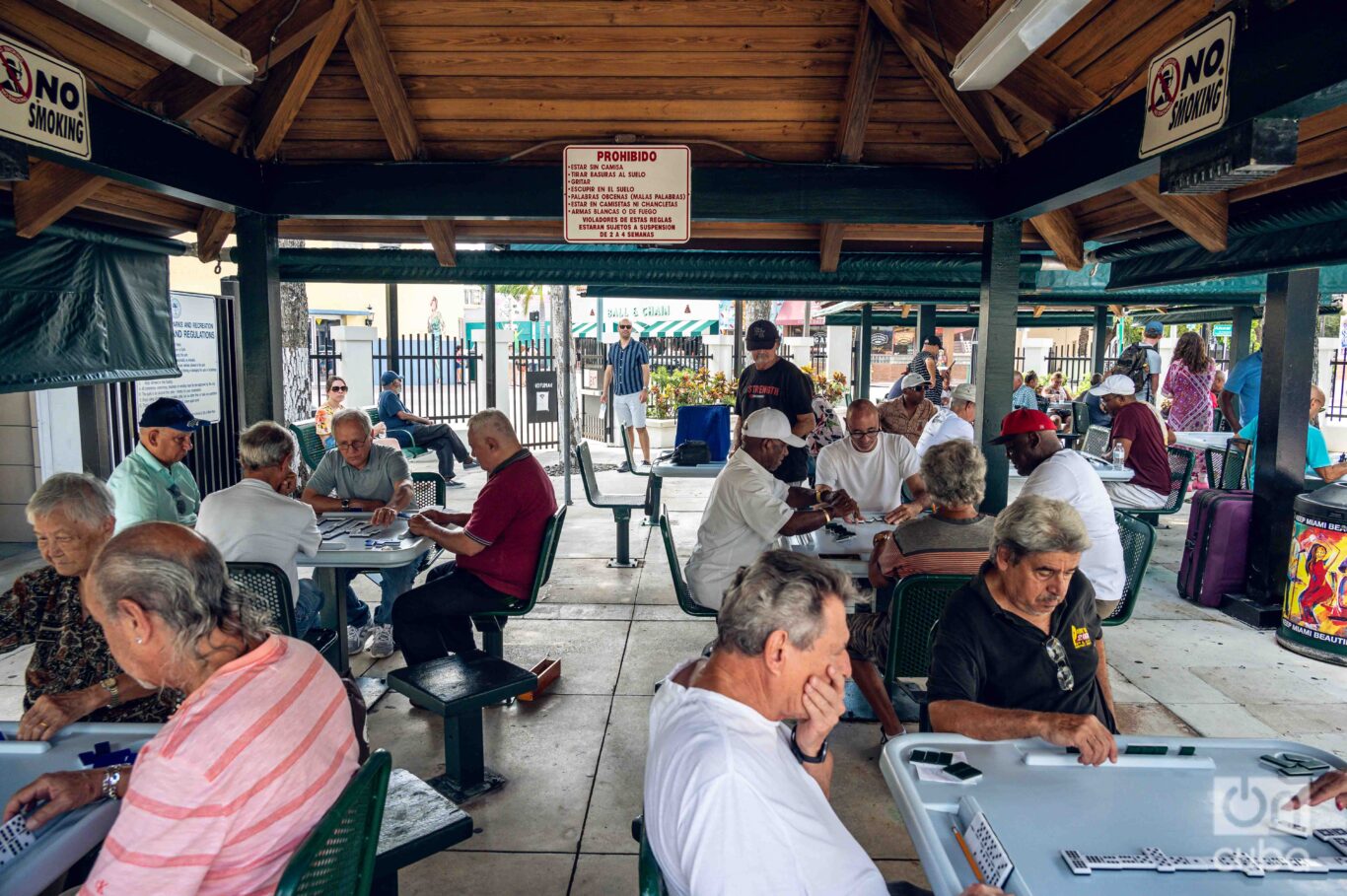
Not everyone can participate in the games. To be part of the community, you need to be a member and meet certain requirements, such as being over 55 years old. This guarantees that those who sit here are experts in a game that, for Cubans, is a national emblem.
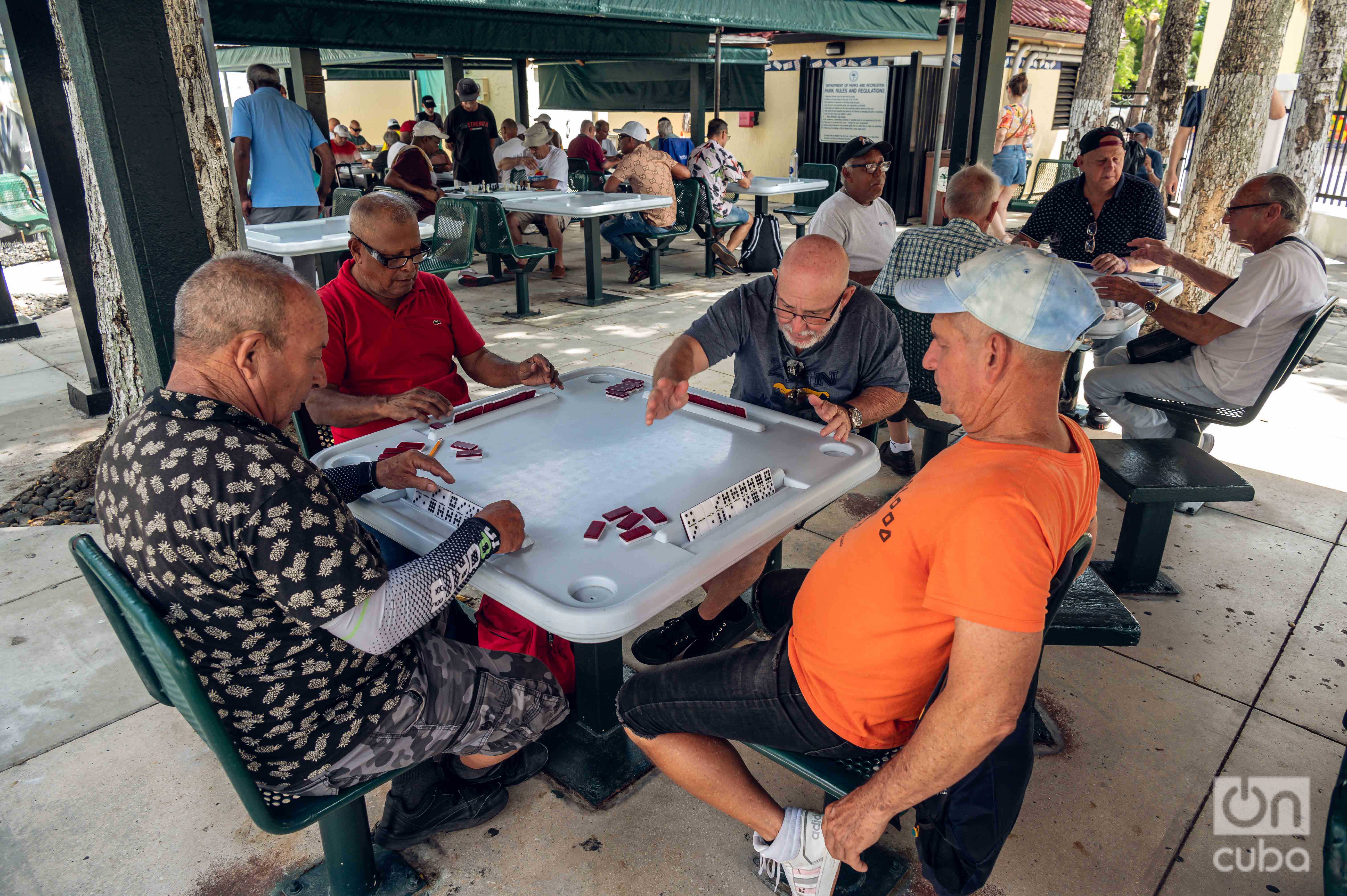
There are strict rules of behavior and dress. Respect is paramount. A sign makes it clear: “Alcoholic beverages are not allowed in the park. Nor people under the influence of alcohol. Prohibited: being shirtless; throwing trash on the floor; shouting; spitting on the floor; using obscene words; wearing a T-shirt or flip-flops; knives or firearms. Violators of these rules will be subject to suspension of 2 to 4 weeks.”
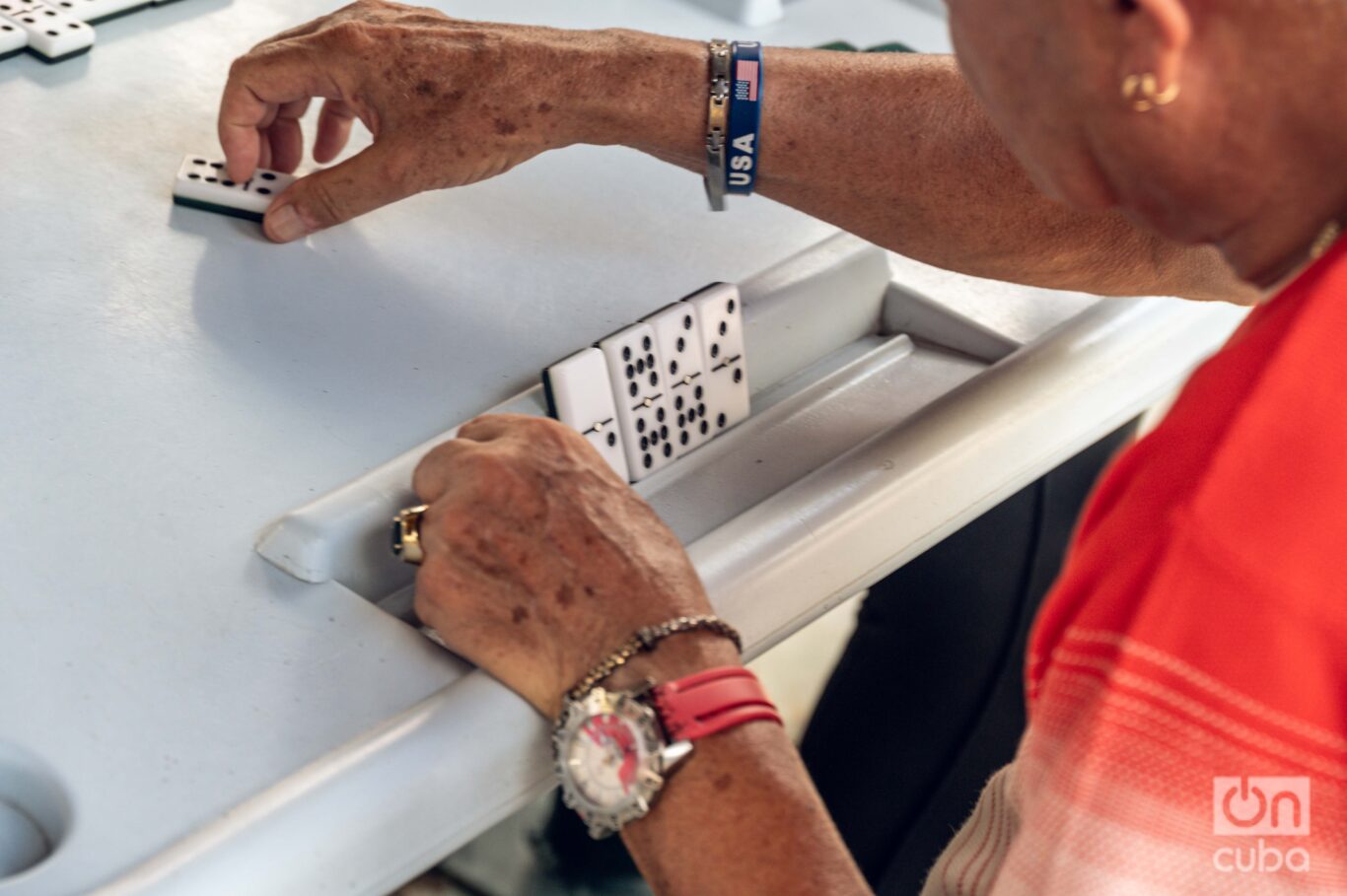
The park is open to the curious. It is a magnet for tourists who visit Little Havana. I walked between the tables, watching the games and taking photos. Voices were raised with phrases typical of the game: “I close with the double one” or “palindrome.” Laughter was mixed with ironic comments that were only understood by those immersed in the particular world of domino.
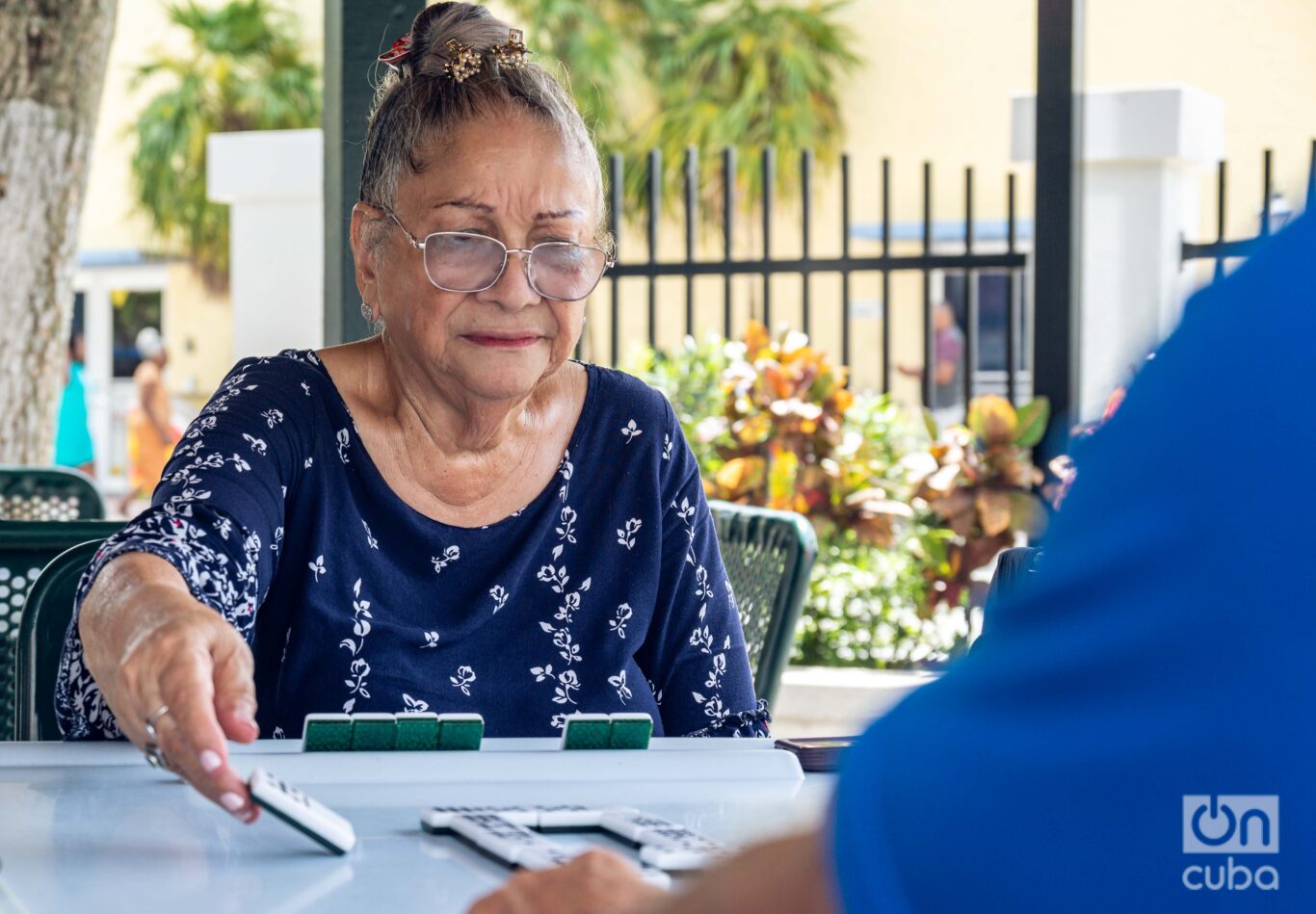
Suddenly, the rhythm was interrupted. One of the players, a lady with blond hair and impeccable makeup, stopped the game when she received a call from Cuba. Her daughter gave her the good news: she had received a visa and they would soon be able to meet again in the United States. The news spread quickly, and everyone at the table celebrated it as if it were their own. The conversation, which began as private, became public in a matter of seconds, and the entire park seemed to share the joy of this upcoming reunion.
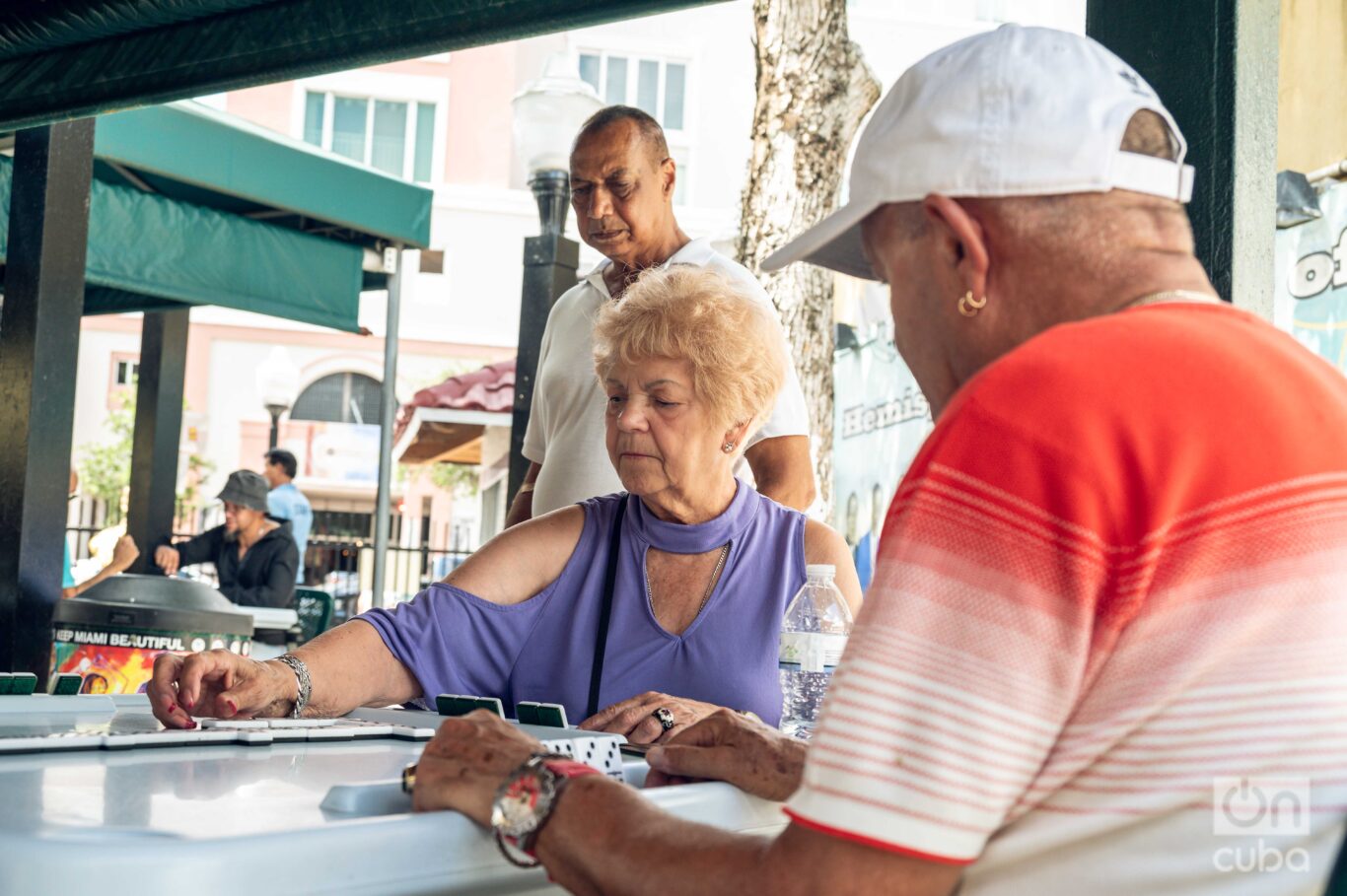
There is never a lack of conversation around a domino table, even though there is a saying that this pastime was invented by a mute. Words flow between moves, while the pieces fall with precision. Everything is discussed: from the latest news on the island to mouth-to-mouth gossip. People talk about So-and-so, who left on a raft, or What’s’his’name, who got parole. Baseball takes center stage. With a special devotion to the Industriales team, even though “it has been in decline for years,” spoke a man wearing a Miami Heat jersey. The jokes never stop, and often the laughter is as loud as the clatter of the pieces against the table.
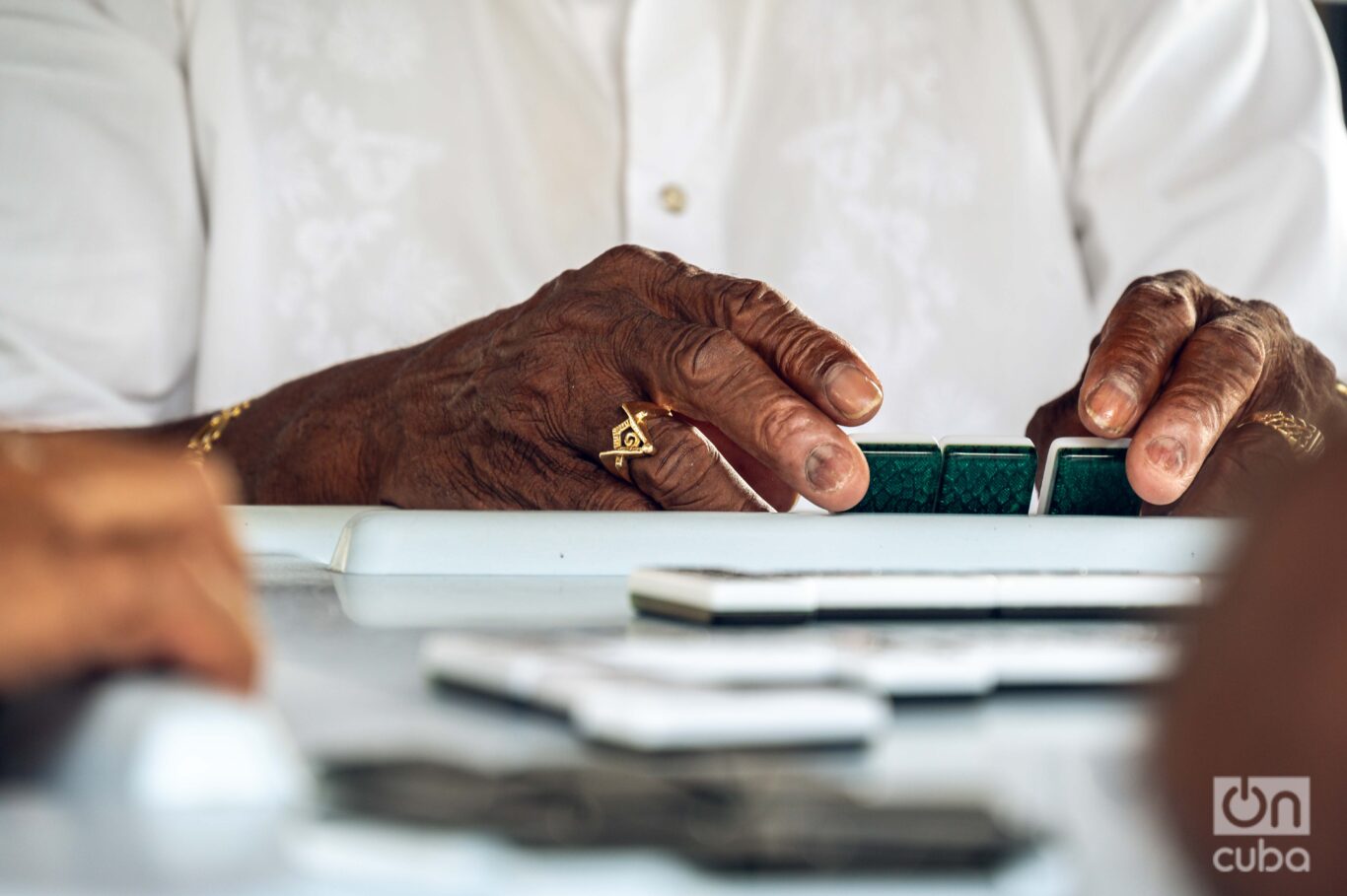
Although we are in Miami, the pulse of Cuba can be felt at these tables. It is curious how time seems to blur. The past and the present are intertwined in each conversation that evokes the island of yesterday and today. For those who are here, domino is more than just a pastime. It is a means to relive memories, to return to those afternoons on the corner of the neighborhood “on the other side of the pond,” as I heard one of the players say while he was winning.
Several generations of Cubans have passed through Domino Park over more than four decades. During all that time, each game has been a way of keeping their identity alive, of recreating those spaces and moments that were left behind. The place has become a refuge of memory, where people talk, laugh, remember and dream.
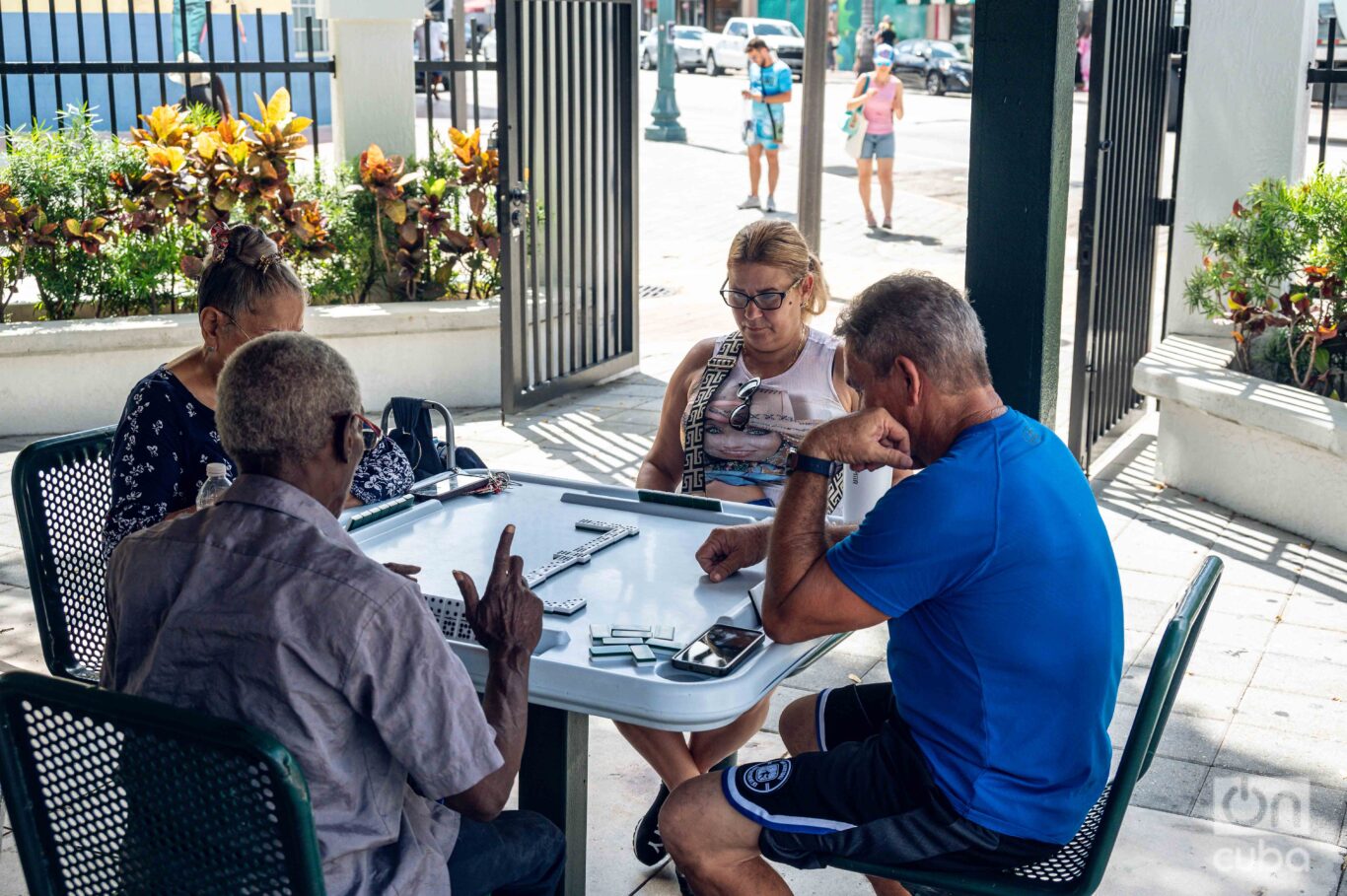
As I continue walking between the tables, the domino pieces continue to fall one after another, as if the game were never going to end. In this corner of Miami, nostalgia and hope continue to be the common thread that unites two worlds, two shores.
